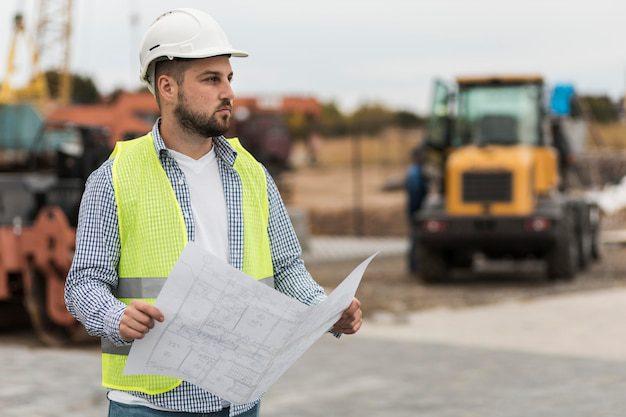When building a house, shop, or road, money flows into many parts of the project. Materials, machines, labor, and overheads all add up. Taxes also play a major role. One of the most common questions is about labor in construction. People want to know if labor for building work is taxable or not. The answer is not simple because tax laws are different from state to state. To understand the full picture, we must look at rules, types of projects, and the way labor charges are handled.
Why Labor Tax Rules Are Different
Tax rules in construction depend on local laws. States set their own systems for sales tax. Some states apply tax to both goods and services. Others only apply tax to goods. Since labor is a service, the way it is taxed is not the same everywhere.
For example:
- In some states, labor for repair work is taxable, but new construction labor is not.
- Some states only tax labor if it is linked with tangible property, like installing tiles or cabinets.
- A few states tax all construction labor, no matter what type of work it is.
This wide range of laws makes it important for contractors and owners to check local tax rules.
Tax on Labor
When people start planning a building job, they often look at construction cost estimating to know how much money will be needed. These estimates include both materials and labor. Labor is often the biggest part of the budget. Some states add sales tax on labor, while others do not. For example, one state may treat labor as a taxable service, while another may only tax materials. This means the total project cost depends on where the work takes place. A homeowner or contractor must study the state rules before signing contracts. This step helps to avoid sudden shocks in the budget later.
Types of Construction Labor
Construction labor is not one single type. It comes in many forms, and each form may be taxed in a different way.
New Construction Labor
- Building a new house, road, or office.
- Many states do not apply tax on this type of labor.
Repair and Maintenance Labor
- Fixing a broken wall, replacing tiles, or repairing pipes.
- Some states apply sales tax on this type of service.
Remodeling Labor
- Changing the design of a kitchen or office space.
- Some states view this as repair, and some treat it as new work.
Installation Labor
- Putting in cabinets, air conditioning units, or floors.
- Often taxable because it links labor with physical goods.
By dividing labor into these groups, tax departments make the rules clear for each case.
What is the role of contractors in labor taxation?

The contractors are the bridge between tax law and the project owner. When required, contractors must also know whether the work is taxable. Contractors that fail to adhere to this rule may later be fined or charged back taxes.
Contractors follow the following steps
- Study state sales tax laws.
- Find out if the type of labor you perform is exempt from taxation or taxable.
- Add taxes when necessary to invoices.
- Pay your taxes on time.
Also, it is vital to have clear and concise communication with the clients. Clients need to know whether they'll be charged tax for the labor in their bill.
Materials vs. Labour in Tax Systems
One more point that can be confusing is the distinction between labor and material. As physical goods, materials almost always attract tax. Wood, steel, and tiles are taxed.
There is more confusion about the nature of labor. Some states tax labor, while others don't. A construction invoice can get complicated when you have to combine taxable material and taxable labor. Contractors should separate materials and labor on invoices. It is important to separate material costs and labor on the invoice.
How states manage exemptions
Several states exempt certain tax cases. These tax exemptions can reduce the total amount of taxes on projects.
Examples include:
- Some government projects do not charge sales tax for labor.
- Non-profit groups, schools, or hospitals may get exemptions.
- Certain zones or housing developments may receive tax reductions.
Documentation is required for each exemption. Owners and contractors must safeguard these records in case audits are conducted.
Budgetary implications for projects
Labor tax affects budgets in more ways than expected. It may appear that a small amount of tax is not a problem, but the impact can be significant when it's applied to large amounts. A 6 percent state tax on labor of $200,000 would result in an increase of $12,000. The additional money can buy materials, permit fees, and even weeks' worth of additional work.
When projects are larger, the tax bill grows even faster. A shopping mall or hospital might spend millions on labor. Even a 5 percent tax could push the total cost higher by hundreds of thousands of dollars. Owners who fail to plan for labor tax may face budget shortages, project delays, or the need to borrow more money.
Importance of record-keeping
Record-keeping is essential for the construction tax. Contractors have to track:
- The Labor Hours
- Costs of Labor
- Material Purchases
- Tax payments
Allowing for clear records helps to eliminate disputes. The records will prove that taxes are handled correctly if an officer of taxation checks the books.
Federal vs. State Rules
It is very important to understand that labor tax is not handled at the federal level. The federal government does not apply sales tax on construction labor. Instead, states hold the power to decide. This makes the system uneven, because each state chooses its own approach.
Two projects of the same size may end up with very different tax bills depending on location. For example, a contractor building a school in one state may not charge tax on labor. In another state, the same job with the same labor hours may include a tax charge of thousands of dollars. Owners who work across different states must be very careful.
Future of Labor Taxes in Construction
The future of labor taxes is a subject of debate among experts. Many states face pressure to raise revenue for schools, roads, and healthcare. Instead of raising income tax, some states look at taxing services like construction labor. For them, labor tax is an easy way to bring in money because construction is always in demand.
If more states decide to tax labor, construction costs will rise nationwide. This may affect housing prices, commercial rents, and public project budgets. Families may find it harder to afford new homes. Businesses may think twice before expanding offices or factories. Governments may also face higher costs for roads and schools.
Conclusion
The question “Is construction labor taxable?” does not have one single answer. The truth depends on state law, the type of labor, and project details. Materials are almost always taxed, but labor is taxed only in some cases. Contractors must follow local rules, separate costs, and keep records. Owners must ask about taxes before starting work. In the end, understanding labor tax helps avoid surprises, plan budgets, and follow the law.
FAQs
Is construction labor always free of sales tax?
No. Some states apply sales tax on construction labor, while others do not.
Do contractors pay tax on labor or owners?
Contractors usually collect sales tax from owners and then pay it to the state.
Are materials treated the same as labor in tax rules?
No. Materials are almost always taxable, but labor may or may not be taxed depending on the state.

